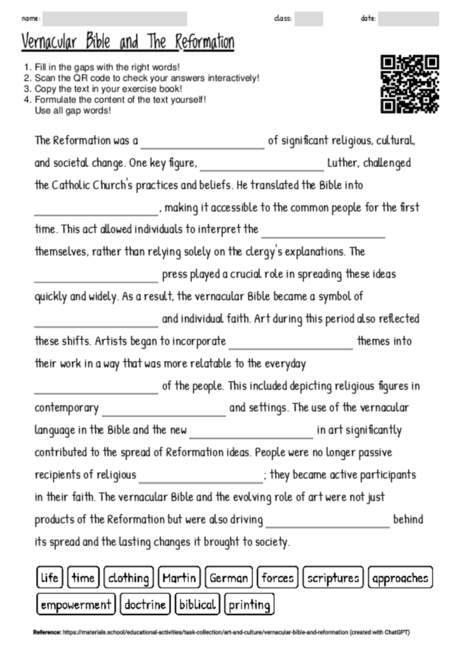Vernacular Bible and The Reformation
Cloze texts like the one created on the Reformation and the role of the vernacular Bible offer several advantages in educational settings. They engage students by requiring active participation to fill in the blanks, which can enhance memory retention and understanding of the material. This particular text serves as an accessible introduction to a complex historical period, highlighting key figures, technological advancements, and cultural shifts in a concise manner. By focusing on how the translation of the Bible into vernacular languages empowered individuals and influenced art, students can grasp the interconnectedness of religious, technological, and cultural changes. Additionally, the text encourages critical thinking by presenting the Reformation's impact on society and individual faith. It can be used in various teaching and learning phases, from introducing the topic to reinforcing knowledge through active recall. Furthermore, discussing the answers to the cloze text can facilitate deeper conversations about the period, encouraging students to explore beyond the basic facts. This method of learning not only makes the historical content more engaging but also more memorable.

